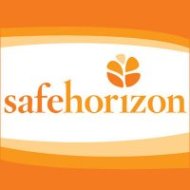Good Evening, I have been contemplating on how to begin todays note. I gave it much thought because it is a subject I have been hearing allot of lately, Domestic Violence.
Thankfully I have never experienced such horror and I hope that none of you ever do. It is a difficult situation to deal with but it is one that you can take control of. I wanted to share a website with you so that you are equipped with information. Sometimes we feel that you don’t have any place to turn to or to embarrassed to even mention it, Don’t be it isn’t your fault. Abuse comes in many ways, verbal, mental and physical. I am not an expert but I have seen many to know that there is help, that there are caring people out there. One of the saddest parts is that there are so many cases that are left unreported. It isn’t just the woman being battered, it is also the children and its that violence that they see that continues to fuel this destructive behavior. I want to share this website so that you can empower yourself and take control because you have so much give.
If you know of anyone that is being abused dont’ keep it to yourself, you owe it to that person, to that child to help and report it.
It takes just one person to care, why not let it be you. http://www.safehorizon.org/index/what-we-do-2/domestic-violence–abuse-53/domestic-violence-the-facts-195.html.
What are the different forms of domestic violence?
According to the National Coalition Against Domestic Violence, abuse often begins with verbal behaviors such as name-calling, threats, and hitting or throwing objects. It can become worse, including pushing, slapping, and holding against the victim’s will. Further battering may include punching, hitting, and kicking and may escalate to life-threatening behaviors such as choking, breaking of bones, or use of weapons.
The following are forms of domestic violence and battering:
- physical – battering or hitting causing physical injury that may include bruising, broken bones, internal bleeding, and death. Often the abuse begins with minor contact and escalates over time into more violent actions.
- sexual – often accompanies or follows physical battering, and results in rape or other forced sexual activity.
- psychological or emotional – an abuser often mentally or emotionally abuses with words, threats, harassment, extreme possessiveness, forced isolation, and destruction of belongings. Isolation often occurs when the abuser tries to control a victim’s time, activities, and contact with others. Abusers may accomplish this through interfering with supportive relationships, creating barriers to normal activities, such as taking away the car keys or locking the victim in the home, and lying or distorting what is real to gain psychological control.
- stalking – repeated harassing or threatening behavior; often leads to physical or sexual abuse.
- economic – when the abuser controls access to the all of the victim’s resources, such as time, transportation, food, clothing, shelter, insurance, and money. For example, he may interfere with her ability to become self-sufficient, and insist that he control all of the finances. When the victim leaves the violent relationship, the perpetrator may use economics as a way to maintain control or force her to return.
Lastly, today’s task: If what I wrote about is something that you know of because of a friend or family member or perhaps you yourself have been in an abusive relationship in the past you owe it to yourself to help another out. The link will give you information on volunteering. If this isn’t a program that you’re interested in its ok, pick one that you feel strongly about and give time back to your community. Stay strong and StandUpLatina and be proud.
INFORMATION:
Safe Horizon: http://www.safehorizon.org/index/get-help-8/dealing-with-domestic-violence-35/tour-a-domestic-violence-shelter-3.html
Toll free# If you or someone you know are being abused…
Call 800.621.HOPE (4673)
New York Presbyterian Hospital: http://nyp.org/health/women-violence.html
